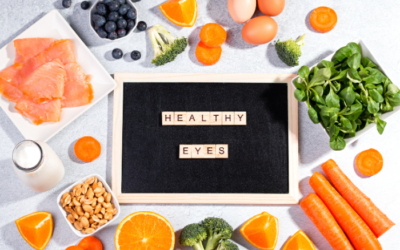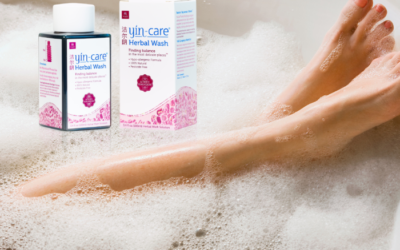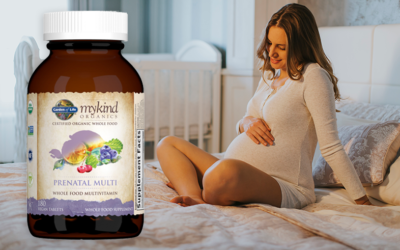Feminine Care 101
Vaginal Health
Vaginal health is more about just keeping your vagina clean – it is about the complications and infections that can arise from poor hygiene as well. If you are aware of the symptoms that can happen – you can avoid them or know when you need to seek treatment or medical help.

Menstruation – a better way
While the mechanisms behind menstruation happen inside your body – your vagina is part of the process. Keeping your vagina healthy and clean while you have your period is essential and will help you feel better in the process.
- Wear breathable and comfortable underwear – choosing organic cotton, bamboo, or other materials that help keep moisture at bay is a good choice for your vagina.
- When buying maxi pads and tampons, look for the organic ones – non-organic cotton is sprayed with pesticides, harsh chemicals and contains chlorine and glyphosate.
- Tampons, in particular, can contain chemicals known as “endocrine disrupters.” “According to Ami Zota, an assistant professor of environmental health at George Washington University. Instead, tampon chemicals are absorbed by the vaginal mucosa, and from there can pass almost directly into your bloodstream.” In addition, they also contain chemicals known as dioxins which are categorized as “highly toxic” and a “known human carcinogen” by the World Health Organization.
- Choose tampons and maxi pads that are fragrance-free because fragrance can disrupt the vagina’s pH balance and cause irritation.
- Try underwear specially made for your period – they come in different flow types – this way, you can keep the toxic chemicals many feminine products contain away from your body altogether + this option is eco-friendly.
- Try a menstrual cup – they can hold five times the amount of a regular tampon and will help keep your vagina clean and dry during your period while avoiding using feminine products with chemicals + this is great for the environment.
- Look for menstrual pads and tampons that are made from organic cotton and do not contain harmful chemicals.

Stop! Your vagina is self-cleaning
Avoid using shower gels, douches, and fragrant soaps on and in your vagina. Your vagina is self-cleaning! Your vagina has a natural discharge that contains a good bacteria called lactobacilli which keeps the vagina’s pH balance at its average level – less than pH 4.5. If the pH increases, you could set up bacteria multiplying and becoming imbalanced, leading to infections, including yeast infections.
Cleaning your vulva with a gentle, natural soap with no fragrance and water is enough for it to be clean and stay healthy.
Say no to douching
Douching is washing and cleaning out the vagina with fluids that contain water and other ingredients. Douching has been linked to health issues, and most doctors recommend that women do not douche.
Douching can change the balance of vaginal flora, which is the bacteria that live in the vagina. It can also affect the natural acidity levels in the vagina. Both work together to create the perfect environment for your vagina’s pH levels. Because the vagina has both good and harmful bacteria, it needs to be balanced. Douching can cause harmful bacteria to overgrow and lead to yeast infection and bacterial vaginosis. If the vaginal infection goes unnoticed or untreated – this overgrowth of bacteria can travel up to the uterus, fallopian tubes, and ovaries – possibly leading to pelvic inflammatory disease.
Scented feminine hygiene products
As mentioned earlier, tampons and menstrual pads that are scented can lead to health problems. This goes the same to vaginal deodorant or vaginal wipes that are fragranced. Better to use products that are not scented and made from natural materials to avoid irritation, discomfort, and vaginal infections.

Your vaginal health and sex
Always clean your vagina and pee after having sex
Peeing after sex may help flush out harmful bacteria that can pass from your genitals to your urethra. This can help prevent UTIs and keep your vagina balanced. Women are thirty times more likely to experience a UTI or urinary tract infection because germs can travel from the vagina to the bladder because a women’s urethra is shorter than a man’s. Simply voiding your bladder and cleaning your vagina after sexual activity can help avoid a UTI and the irritation caused by condom particles and your partner’s body fluids.
If you use a lubricant during sex, make sure it is fragrance-free and paraben-free.
Practice safe sex
Having unprotected sex doesn’t only carry the risk of STDs or sexually transmitted diseases like gonorrhea, herpes, chlamydia, warts, syphilis, or HIV (human immunodeficiecy virus), a danger to your vaginal health because this disease can affect the outside and inside of your vagina.

Menopause and peri-menopause and vaginal dryness
As a woman enters the peri-menopausal and menopausal stages of her life, her vagina may need some extra TLC. Vaginal dryness is a common symptom. Vaginal dryness is caused by lower estrogen levels and may cause thinning and drier vaginal tissues. Itchiness, irritation, pain during sex can all occur; vaginal moisturizers without fragrance, unscented lubricants, and continued sexual activity help alleviate discomfort and irritation. While vaginal dryness is common for women experiencing menopause, it can happen at any stage in a woman’s life. Vaginal dryness can also be caused by hormone therapy, chemotherapy for cancer treatment, radiation therapy in the pelvic area, immune disorders, and surgical removal of ovaries or a hysterectomy. In addition, certain medications (like cold and allergy medications), douching, laundry detergents, soaps, cigarette smoking, tampons, and condoms can cause vaginal dryness.
Other natural remedies for vaginal dryness
- Wild yam cream – a natural source of estrogen
- Black cohosh – may help relieve vaginal dryness
- Kudzu – an herb that, when taken in capsule form, kudzu can alleviate vaginal dryness and restore the health of vaginal tissue
- Increase the amount of soy you consume because they contain estrogen-like substances called isoflavones that can help with vaginal dryness
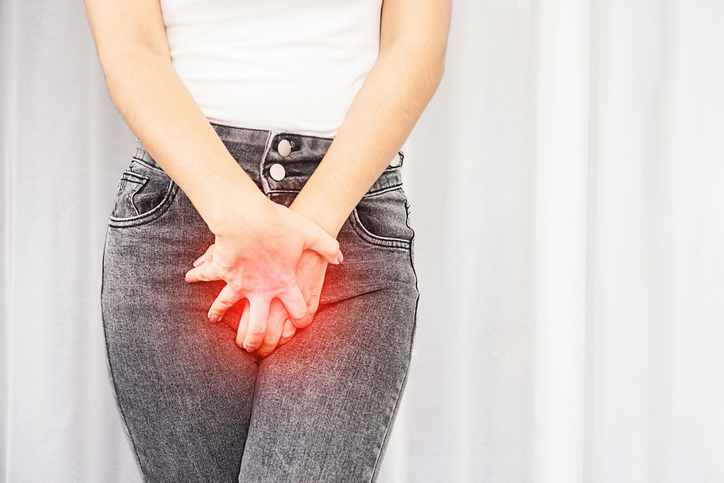
What you wear and your vagina
Let your vagina breathe
Many experts recommend that you only wear breathable fabrics like cotton to keep your vagina dry and healthy:
- Avoid wearing tight clothing that can decrease air circulation, leading to bacteria overgrowth and yeast infections because of excessive sweating and moisture.
- Don’t wear materials like leather pants and tight spandex pants.
- Go commando when going to bed – ditching the underwear when you sleep can help keep your vagina healthy.
- Don’t wear a wet bathing suit for an extended period.
- Always change your clothes after you work out or get sweaty exercising or doing another strenuous activity.
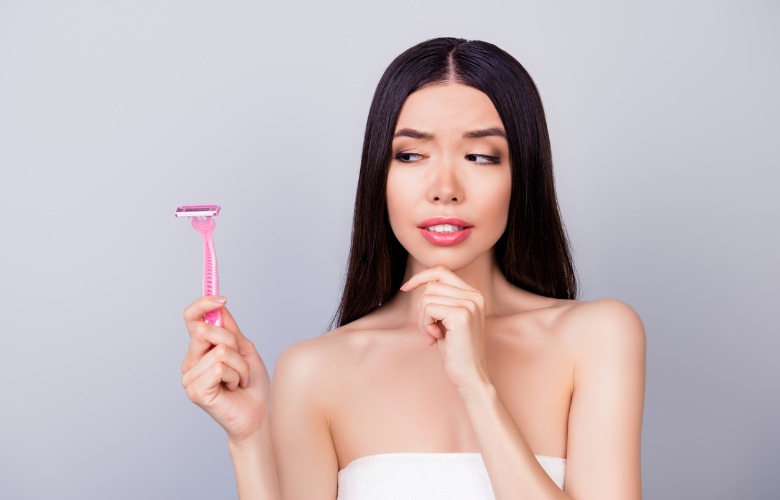
Pubic hair and vaginal health
Leave your vagina au natural
Many women consider pubic hair gross and unclean but the opposite is true. It has become very trendy to shave or wax your pubic area, however, your pubic hair serves an essential purpose!
- Pubic hair protects your vagina from friction that can cause skin irritation
- It helps to reduce the sweat around your vagina
- It helps block your vagina from bacteria and infections, including STDs, UTIs, and yeast infections
- It helps to regulate your body temperature
- Not shaving or waxing your hair avoids skin irritations like cuts, bumps, ingrown hairs, or inflammation
- It is perfectly hygienic and meant to be on your vagina
- Trimming your pubic hair to a comfortable length is the recommendation
- If you do shave, remember to shave towards the direction of your hair follicles to avoid ingrown hairs
- Shaving pubic hair has also been linked to vulvar dysplasia and inflammation

Other ways to a healthier vagina
Eat for your vaginal health
Foods that contain live bacteria such as Lactobacillus rhamnosus can colonize the vagina via the digestive tract and help keep your pH in balance. Eating foods like kefir and kimchi can help.
Foods that can help the mucous membranes of your vaginal lining healthy include those with essential fatty acids, especially Omega-7 oils, avocados, oily fish, and sea buckthorn oil.
Stay hydrated
Water and hydration help to flush toxins from your body and restore balance – this includes your vagina. Coconut water and electrolyte drinks can also help keep you hydrated.
Don’t self-diagnose or self-medicate your vaginal issues
You may feel embarrassed to talk to someone about symptoms you are experiencing with your vagina. However, it is essential to consult a gynecologist when it comes to any infections or diseases. You may think you can get an over-the-counter ointment or cream or use a natural remedy, but you need to rule out more serious health issues and get the best treatment for that problem. Look for a GYN that leans towards a more holistic approach if you want more natural remedies.

Jemile earned a degree in Food Studies and Writing and has worked for almost 23 years in the medical and health industries. She has been a digital marketing consultant for Acupuncture Atlanta since 2011 as the social media manager and content manager. Writing has been a childhood dream for Jemile and writing daily for clients in the health, wellness, food, and art industries have been phenomenal. Jemile is originally from Brooklyn, NY, and lives in the Hudson Valley, NY. She lives with her husband, two daughters, her dog, and two fish. You can contact Jemile via Linkedin, her mom blog, or her website, lunaroseconsulting.com

